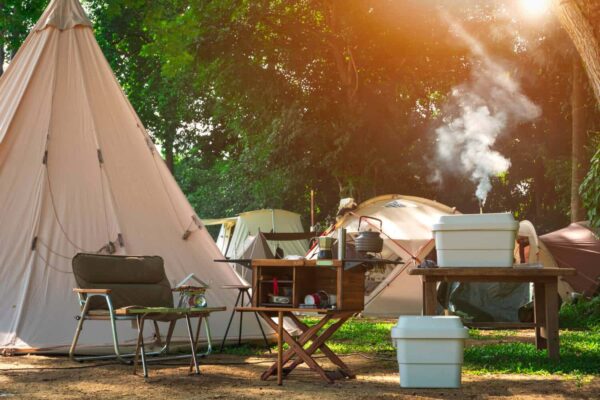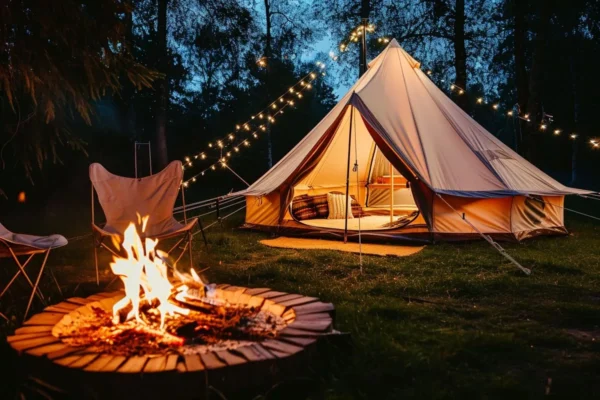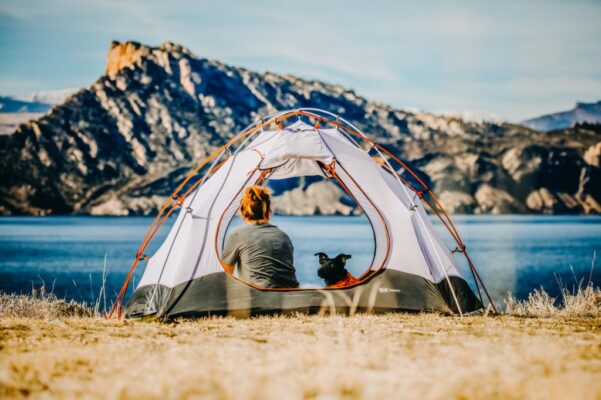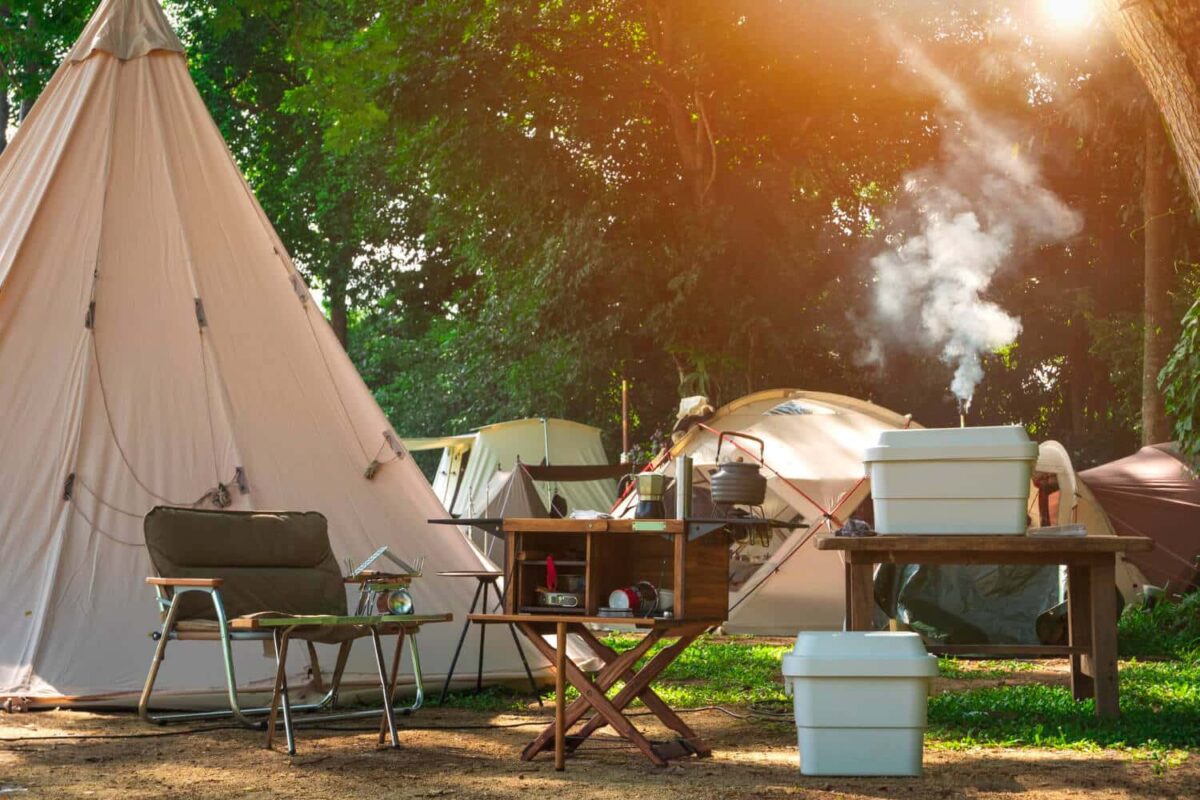In nature, the peace and tranquility one finds is often unparalleled. However, to truly enjoy this experience, it is crucial to understand how to prepare for a safe camping experience. Whether you’re a seasoned camper or a first-timer, thorough preparation can minimize risks and enhance your outdoor adventure. In this guide, we will outline essential steps you need to take before heading into the wilderness, ensuring you have the knowledge and tools to foster a secure environment while enjoying the wonders of nature.

Understanding Your Environment
Before embarking on any camping trip, it’s vital to comprehend the specific environment you’ll be entering. Each location possesses its unique characteristics, challenges, and beauty, so understanding these aspects could significantly affect your safety.
Researching Weather Conditions
The weather plays a pivotal role in determining what to pack and how to prepare for your camping trip.
Consider utilizing reliable weather apps or websites that provide forecasts specific to your chosen campsite’s location. Closely monitor conditions leading up to your departure and check for updates regularly.
It’s also wise to learn about local climatic patterns during the time of year you’re planning your trip. For instance, certain regions may experience sudden thunderstorms or temperature drops at night, impacting your itinerary and preparations. By staying informed, you can plan activities accordingly and ensure you’re equipped with appropriate clothing and gear.
Familiarizing Yourself with Local Wildlife
Every natural environment has its own set of wildlife, some of which may pose potential threats.
Research the types of animals native to your camping area, including any that might be dangerous. For example, knowing how to deal with bears, snakes, or insects is vital for your safety.
Precautionary measures such as carrying bear spray, avoiding leaving food out, and understanding animal behavior can significantly reduce risks. Always educate yourself about what to do if you encounter wildlife. Awareness not only protects you but also fosters a respectful relationship with nature.
Understanding Terrain and Trail Conditions
Different terrains present various challenges that must be factored into your planning.
Before your trip, study maps of hiking trails and campsite layouts. These resources provide insights into elevation changes, water sources, and potential hazards like cliffs or rocky paths.
If you are unfamiliar with a design, consider using GPS devices or trail apps to guide you during your hike. A well-prepared camper knows the land, allowing them to make safer choices during their outing and minimizing the risk of getting lost or injured.
Essential Gear and Supplies
Having the right gear is fundamental to preparing for a safe camping experience. Well-chosen equipment ensures you are comfortable and protected against nature’s unpredictability.

Choosing the Right Tent and Sleeping Gear
Your tent serves as your shelter, so selecting the right one is imperative.
Look for a tent that can withstand the seasonal weather conditions of your camping site. For example, a three-season tent is perfect for most summer outings but may fall short in winter conditions.
Moreover, don’t overlook your sleeping gear. A quality sleeping bag rated for expected temperatures will keep you warm and comfortable throughout the night. An insulating sleeping pad adds extra comfort and insulation from the ground.
Packing First Aid Kits and Emergency Supplies
Accidents happen, even in the great outdoors.
A comprehensive first aid kit tailored to your group’s needs is crucial. Stock items like adhesive bandages, antiseptic wipes, pain relievers, and any personal medications. You might also want to include specialized gear like splints or snake bite kits depending on your destination.
In addition to medical supplies, consider including emergency equipment such as flashlights, whistles, fire starters, and a multi-tool. Having these supplies readily available can provide peace of mind and enable you to handle unforeseen circumstances effectively.
Sufficient Food and Water Supplies
Proper nutrition and hydration are essential components of a successful camping experience.
Plan meals ahead of time, focusing on lightweight and non-perishable foods that are easy to cook. Items such as dehydrated meals, nuts, energy bars, and instant oatmeal work well for camp cooking.
Water is equally important. Depending on your campsite, you may need to bring enough water to last the entire trip or have a reliable purification system for sourcing clean water from nearby lakes or rivers.
Understanding the importance of food and water for both energy and safety cannot be overstated.
Safety Protocols and Best Practices
Knowing the rules of the wild is as important as having the right gear. Implementing safety protocols and best practices can prevent many common camping mishaps.

Fire Safety Measures
Building a campfire is often a cherished tradition among campers, yet it carries inherent risks.
Always follow established fire regulations in your camping area. Use designated fire pits when available, and never leave a fire unattended. Ensure the fire is completely extinguished before retiring for the night or leaving the site.
Familiarize yourself with fire-starting techniques and carry waterproof matches or a lighter. Additionally, packing a fire extinguisher for safety can prove invaluable in case of emergencies.
Establishing a Communication Plan
In the event of an emergency, it is vital to have a communication plan in place.
Inform someone who won’t be joining you about your camping itinerary, including your planned route and return schedule. This way, they can alert authorities if you miss your return window.
While cell phone coverage is often limited in remote areas, consider bringing a satellite phone or a personal locator beacon (PLB). These devices can provide a lifeline in situations where traditional communication fails.
Following Leave No Trace Principles
Respecting nature is paramount for preserving the environment for future generations.
Adhere to the Leave No Trace principles by minimizing your impact on the landscape. This includes proper waste disposal, respecting wildlife, and sticking to established trails.
Not only does practicing these principles help maintain the integrity of our natural spaces, but it also fosters a sense of responsibility among campers. Every action counts toward creating a sustainable future for outdoor exploration.
FAQs
What should I pack for a camping trip?
When packing for a camping trip, consider including essential gear such as a quality tent, sleeping bag, cooking supplies, food, water, first aid kit, and proper clothing for the climate. Don’t forget items for safety and emergencies, including a flashlight, whistle, and fire-starting materials.
How can I stay safe from wildlife while camping?
To stay safe from wildlife, research the animals in the area, properly store food in bear-proof containers or hang it from trees, and make noise while hiking to avoid surprising animals. Always maintain a respectful distance if you encounter any wildlife.
What should I do if I get lost while hiking?
If you become lost while hiking, stop and assess your situation. Avoid wandering further and try to retrace your steps. If you have a map and compass or a GPS device, use them to find your way back. If you cannot navigate, stay put, conserve energy, and signal for help.
Are there any camping regulations I should know about?
Yes, each camping area may have specific regulations regarding campfires, food storage, and waste disposal. Always check local guidelines before your trip to ensure you comply with rules designed to protect both the campers and the environment.
How do I prepare for extreme weather during my camping trip?
Preparing for extreme weather involves researching forecasts and packing accordingly. Bring appropriate gear, such as rain jackets, thermal layers, and sturdy footwear. Consider setting up camp in locations that offer natural protection against wind and heavy precipitation.
Conclusion
Camping offers a refreshing escape from daily life, but it requires careful planning and preparation to ensure a safe experience. Understanding your environment, choosing the right gear, implementing safety practices, and being mindful of nature are all integral components of preparing for a safe camping experience. Each step taken before your adventure contributes not only to your safety but also to the enjoyment of the beautiful wilderness around you. By equipping yourself with knowledge and being proactive in your preparations, you can create unforgettable memories while embracing the great outdoors responsibly and safely.

